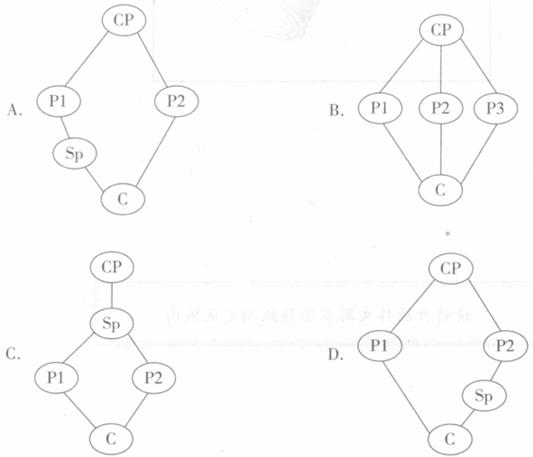C
The five clearest role-related behaviours of travellers (in order of relative importance )
|
Tourist |
takes photos, buys souvenirs, goes to famous places, stays briefly in one place, does not understand the local people |
|
Traveller |
stays briefly in one place, experiments with local food, goes to famous places, takes photos, explores places privately |
|
Holidaymaker |
takes photos, goes to famous places, is separated from the local society, buys souvenirs, contributes to the visited economy |
|
Jet-setter |
lives a life of luxury (奢侈) , concerned with social status, seeks physical pleasures, prefers communicating with people of his/her own kind, goes to famous places |
|
Businessperson |
concerned with social status, contributes to the economy, does not take photos prefers interacting with people of his/her own kind, lives a life of luxury |
|
Conservationist |
interested in the environment, does not buy souvenirs, does not exploit the local people, explores places privately, takes photos |
|
Explorer |
explores places privately, interested in the environment, takes physical risks, does not buy souvenirs, observes the visited economy |
|
Overseas student |
experiments with local food, does not exploit the people, takes photos, observes the visited society, takes physical risks |
|
International athlete |
is not separated from their own society, does not exploit the local people, does not understand the local people, explores places privately, searches for the meaning of life |
|
Overseas journalist |
takes photos, observes the visited society, goes to famous places, takes physical risks, ex |
64.Which of the following behaviours do Tourist, Traveller and Holidaymaker share?
A.Stay briefly in one place. B.Buy souvenirs.
C.Go to famous places. D.Explore places privately.
65.We can learn that overseas students .
A.are curious about the society they visit
B.like to do experiments with local food
C.take photos as their teachers have instructed
D.enjoy taking physical risks because they are brave
66.According to the passage, which of the following is true?
A.Three groups are interested in exploring places privately.
B.More than two groups live a life of luxury.
C.Six groups are fond of taking photos.
D.Two groups don't like buying souvenirs.
D
The rising costs of health care have become a problem for many countries in the world. To deal with this problem, it is recommended that a big part of the government's health budget be used for health education and disease prevention instead of treatment. Actually, many kinds of diseases are preventable in many ways and preventing a disease is usually much cheaper than treating it. For example, people could avoid catching a cold if they dressed warmly when the weather starts getting cold. But many people get sick because they fail to do so, and have to spend money seeing a doctor.
Daily habits like eating more healthy food would have kept millions of families from becoming bankrupt if the patients had taken measures for early prevention. For instance, keeping a balanced diet, such as not consuming too much animal fat and insuring a steady intake of vegetables and fruits, seems to be quite important.
One very effective and costless way of prevention is regular exercise, which is necessary for a healthy mind and body. Regular exercise, such as running, walking, and playing sports is a good way to make people feel better or reduce stress.
In addition, health education plays a key role in improving people's health. By giving people more information about health, countries could help people understand the importance of disease prevention and ways to achieve it. For example, knowing one's family medical history is an effective way to help keep healthy. Information about health problems among close relatives will make them aware of what they should do to prevent certain diseases through lifestyle changes, which will work before it is too late.
However, stressing disease prevention does not mean medical treatment is unimportant. After all, prevention and treatment are just two different means toward the same effect. In conclusion, we could save money on health care and treat patients more successfully if our country spends more money on health prevention and education.
67.What’s the best title of the passage?
A.Prevention or Education?
B.Prevention or Treatment?
C.Health or Illness?
D.Exercise or Illness?
68.Which of the following can replace the underlined word “bankrupt’’?
A.Unable to be cured
B.Unable to pay one’s debts
C.Stronger than ever before
D.More successful than ever before
69.We learn from the passage that .
A.dressing warmly can prevent diseases
B.a balanced diet is cheaper than regular exercise
C.the more health education, the better
D.the government’s health budget should be increased
70.Which of the following shows the structure of the passage?

CP (Central Point) P (Point) Sp (Sub-point次要点) C (Conclusion)
相关推荐:提高系列:2010年各地高考英语预测试题汇总2010年高考作文备考:高考零分作文汇总
·2020年高考英语抢分题型专练及答案(13) (2020-4-3 17:34:24)
·2020年高考英语抢分题型专练及答案(12) (2020-4-3 17:33:27)
·2020年高考英语抢分题型专练及答案(11) (2020-4-3 17:31:14)
·2020年高考英语抢分题型专练及答案(10) (2020-4-1 16:16:05)
·2020年高考英语抢分题型专练及答案(9) (2020-4-1 16:14:49)
·免费真题 ·模考试题

2022年上海高考作文题目已公布
2022年湖南高考地理答案已公布
2022年湖南高考生物答案已公布
2022年广东高考地理试题答案已公布
2022年湖南高考生物真题已公布
2022年广东高考真题及答案汇总
2022年浙江高考真题及答案汇总
2022年广东高考生物真题及答案已公布(完整版)
2022年浙江高考政治真题及答案已公布(完整版)
| 国家 | 北京 | 天津 | 上海 | 重庆 |
| 河北 | 山西 | 辽宁 | 吉林 | 江苏 |
| 浙江 | 安徽 | 福建 | 江西 | 山东 |
| 河南 | 湖北 | 湖南 | 广东 | 广西 |
| 海南 | 四川 | 贵州 | 云南 | 西藏 |
| 陕西 | 甘肃 | 宁夏 | 青海 | 新疆 |
| 黑龙江 | 内蒙古 | 更多 | ||

